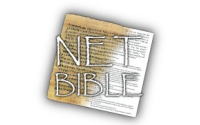November 1 – Ezekial 17 and 18 from the Old Testament
Ezekial 17 and 18 – A Parable of Two Eagles and a Vine
17:1 The word of the Lord came to me: 17:2 “Son of man, offer a riddle, and tell a parable to the house of Israel. 17:3 Say to them: ‘This is what the sovereign Lord says:
“‘A great eagle with broad wings, long feathers,
with full plumage which was multi-hued,
came to Lebanon and took the top of the cedar.
17:4 He plucked off its topmost shoot;
he brought it to a land of merchants
and planted it in a city of traders.
17:5 He took one of the seedlings of the land,
placed it in a cultivated plot;
a shoot by abundant water,
like a willow he planted it.
17:6 It sprouted and became a vine,
spreading low to the ground;
its branches turning toward him, its roots were under itself.
So it became a vine; it produced shoots and sent out branches.
17:7 “‘There was another great eagle
with broad wings and thick plumage.
Now this vine twisted its roots toward him
and sent its branches toward him
to be watered from the soil where it was planted.
17:8 In a good field, by abundant waters, it was planted
to grow branches, bear fruit, and become a beautiful vine.
17:9 “‘Say to them: This is what the sovereign Lord says:
“‘Will it prosper?
Will he not rip out its roots
and cause its fruit to rot and wither?
All its foliage will wither.
No strong arm or large army
will be needed to pull it out by its roots.
17:10 Consider! It is planted, but will it prosper?
Will it not wither completely when the east wind blows on it?
Will it not wither in the soil where it sprouted?’”
17:11 Then the word of the Lord came to me: 17:12 “Say to the rebellious house of Israel: ‘Don’t you know what these things mean?’ Say: ‘See here, the king of Babylon came to Jerusalem and took her king and her officials prisoner and brought them to himself in Babylon. 17:13 He took one from the royal family, made a treaty with him, and put him under oath. He then took the leaders of the land 17:14 so it would be a lowly kingdom which could not rise on its own but must keep its treaty with him in order to stand. 17:15 But this one from Israel’s royal family rebelled against the king of Babylon by sending his emissaries to Egypt to obtain horses and a large army. Will he prosper? Will the one doing these things escape? Can he break the covenant and escape?
17:16 “‘As surely as I live, declares the sovereign Lord, surely in the city of the king who crowned him, whose oath he despised and whose covenant he broke – in the middle of Babylon he will die! 17:17 Pharaoh with his great army and mighty horde will not help him in battle, when siege ramps are erected and siege-walls are built to kill many people. 17:18 He despised the oath by breaking the covenant. Take note – he gave his promise and did all these things – he will not escape!
17:19 “‘Therefore this is what the sovereign Lord says: As surely as I live, I will certainly repay him for despising my oath and breaking my covenant! 17:20 I will throw my net over him and he will be caught in my snare; I will bring him to Babylon and judge him there because of the unfaithfulness he committed against me. 17:21 All the choice men among his troops will die by the sword and the survivors will be scattered to every wind. Then you will know that I, the Lord, have spoken!
17:22 “‘This is what the sovereign Lord says:
“‘I will take a sprig from the lofty top of the cedar and plant it.
I will pluck from the top one of its tender twigs;
I myself will plant it on a high and lofty mountain.
17:23 I will plant it on a high mountain of Israel,
and it will raise branches and produce fruit and become a beautiful cedar.
Every bird will live under it;
Every winged creature will live in the shade of its branches.
17:24 All the trees of the field will know that I am the Lord.
I make the high tree low; I raise up the low tree.
I make the green tree wither, and I make the dry tree sprout.
I, the Lord, have spoken, and I will do it!’”
Individual Retribution
18:1 The word of the Lord came to me: 18:2 “What do you mean by quoting this proverb concerning the land of Israel,
“‘The fathers eat sour grapes
And the children’s teeth become numb?’
18:3 “As surely as I live, declares the sovereign Lord, you will not quote this proverb in Israel anymore! 18:4 Indeed! All lives are mine – the life of the father as well as the life of the son is mine. The one who sins will die.
18:5 “Suppose a man is righteous. He practices what is just and right, 18:6 does not eat pagan sacrifices on the mountains or pray to the idols of the house of Israel, does not defile his neighbor’s wife, does not have sexual relations with a woman during her period, 18:7 does not oppress anyone, but gives the debtor back whatever was given in pledge, does not commit robbery, but gives his bread to the hungry and clothes the naked, 18:8 does not engage in usury or charge interest, but refrains from wrongdoing, promotes true justice between men, 18:9 and follows my statutes and observes my regulations by carrying them out. That man is righteous; he will certainly live, declares the sovereign Lord.
18:10 “Suppose such a man has a violent son who sheds blood and does any of these things mentioned previously 18:11 (though the father did not do any of them). He eats pagan sacrifices on the mountains, defiles his neighbor’s wife, 18:12 oppresses the poor and the needy, commits robbery, does not give back what was given in pledge, prays to idols, performs abominable acts, 18:13 engages in usury and charges interest. Will he live? He will not! Because he has done all these abominable deeds he will certainly die. He will bear the responsibility for his own death.
18:14 “But suppose he in turn has a son who notices all the sins his father commits, considers them, and does not follow his father’s example. 18:15 He does not eat pagan sacrifices on the mountains, does not pray to the idols of the house of Israel, does not defile his neighbor’s wife, 18:16 does not oppress anyone or keep what has been given in pledge, does not commit robbery, gives his food to the hungry, and clothes the naked, 18:17 refrains from wrongdoing, does not engage in usury or charge interest, carries out my regulations and follows my statutes. He will not die for his father’s iniquity; he will surely live. 18:18 As for his father, because he practices extortion, robs his brother, and does what is not good among his people, he will die for his iniquity.
18:19 “Yet you say, ‘Why should the son not suffer for his father’s iniquity?’ When the son does what is just and right, and observes all my statutes and carries them out, he will surely live. 18:20 The person who sins is the one who will die. A son will not suffer for his father’s iniquity, and a father will not suffer for his son’s iniquity; the righteous person will be judged according to his righteousness, and the wicked person according to his wickedness.
18:21 “But if the wicked person turns from all the sin he has committed and observes all my statutes and does what is just and right, he will surely live; he will not die. 18:22 None of the sins he has committed will be held against him; because of the righteousness he has done, he will live. 18:23 Do I actually delight in the death of the wicked, declares the sovereign Lord? Do I not prefer that he turn from his wicked conduct and live?
18:24 “But if a righteous man turns away from his righteousness and practices wrongdoing according to all the abominable practices the wicked carry out, will he live? All his righteous acts will not be remembered; because of the unfaithful acts he has done and the sin he has committed, he will die.
18:25 “Yet you say, ‘The Lord’s conduct is unjust!’ Hear, O house of Israel: Is my conduct unjust? Is it not your conduct that is unjust? 18:26 When a righteous person turns back from his righteousness and practices wrongdoing, he will die for it; because of the wrongdoing he has done, he will die. 18:27 When a wicked person turns from the wickedness he has committed and does what is just and right, he will preserve his life. 18:28 Because he considered and turned from all the sins he had done, he will surely live; he will not die. 18:29 Yet the house of Israel says, ‘The Lord’s conduct is unjust!’ Is my conduct unjust, O house of Israel? Is it not your conduct that is unjust?
18:30 “Therefore I will judge each person according to his conduct, O house of Israel, declares the sovereign Lord. Repent and turn from all your wickedness; then it will not be an obstacle leading to iniquity. 18:31 Throw away all your sins you have committed and fashion yourselves a new heart and a new spirit! Why should you die, O house of Israel? 18:32 For I take no delight in the death of anyone, declares the sovereign Lord. Repent and live!




